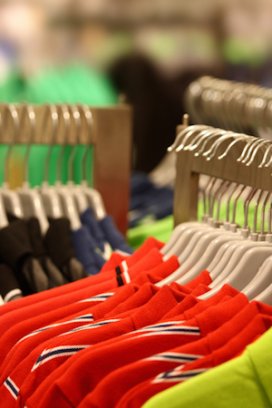
New life for airplane structure material
Report on the rise of the second hand clothing market.

18th September 2024
Innovation in Textiles
|
United Kingdom
Report summary
In a world where appearances matter, slipping into a new dress or jeans can be a big confidence booster and this, combined with low prices, has helped to drive the fast fashion market. But fast fashion is blamed for the huge amount of waste textile and clothing waste generated each year and for increasing global carbon emissions, which are a major concern in the context of climate change.
To mitigate the impact of this increase, circular business models are crucial, and second-hand clothing marketplaces could help as they are among the best channels for extending the lifespan of a product. Moreover, second-hand clothing can still satisfy consumer demand for “something new”—clothes which are new to consumers do not have to be brand new; they may be second-hand or “pre-loved”.
However, Vinted has been criticised for the large numbers of fast fashion items on its resale platform, and online shoppers worry about their authenticity. Brands do not know whether products on the resale market bearing their names are fake, and they cannot risk being associated with poor quality counterfeits. Additionally, growing numbers of consumers want brands to ensure that their fashion value chains are ethical, environmentally sustainable and reliable. But no standard technology exists for product authentication, and this makes the process costly for an individual company.
To reassure consumers, new authentication and digital traceability tools are needed. In the meantime, online second-hand clothing marketplaces use costly in-person brand experts to inspect items by hand and determine their authenticity based on “reasonable efforts”. Vestiaire Collective, for example, has trained a team of 60 authentication experts with backgrounds in luxury brands and auction houses. In order to develop an authentication system, a pilot scheme has been launched by a global alliance of manufacturers, suppliers, brand owners, consumers’ representatives and regulators which uses digital traceability to “drive” circularity and sustainability.
In particular, the scheme will reinforce the fashion circular business model using a technology platform which is able to perform authentication through a unique digital ID installed on each garment or accessory.
At the same time, the application of digital traceability will help to discourage the sale of counterfeit clothing in resale marketplaces, thereby protecting consumers, brands and the marketplaces themselves.
Buy this report
Publisher: Textiles Intelligence
‘Editorial: Can online second-hand clothing sites selling fast fashion cut waste and carbon emissions?’
9 pages, published in July 2024
Report price: Euro 325.00; US$ 426.00
Reports are supplied in PDF format only via email and can be purchased by credit card or via PayPal. Alternatively, readers can email their order and we will invoice accordingly and send their report by email upon receipt of payment.
To buy this report, please select one of the buttons below or email [email protected].

Business intelligence for the fibre, textiles and apparel industries: technologies, innovations, markets, investments, trade policy, sourcing, strategy...
Find out more